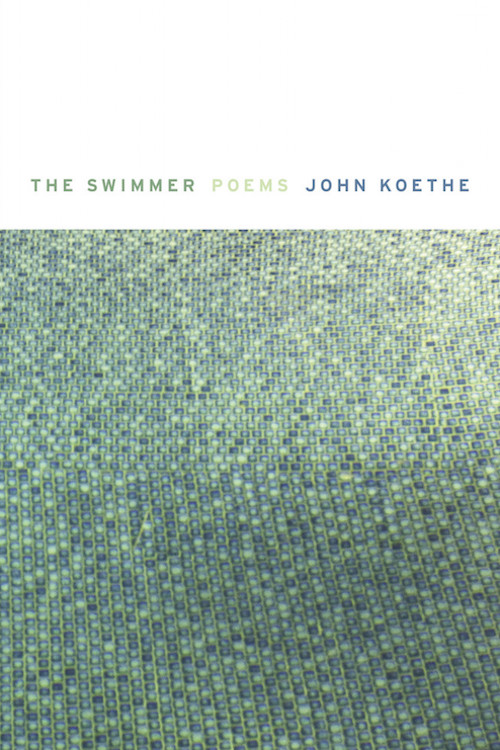John Yau Reviews John Koethe's The Swimmer

At Hyperallergic, John Yau covers John Koethe’s tenth book of poetry, The Swimmer. It is apparent, Yau writes, that Koethe's study of philosophy has made him into a "philosopher poet," and one who moves "from the particulars of a mundane memory to the realm of epistemology, which is the study of knowledge and the question of what is truth." More:
In Koethe’s poems, these two poles are always connected through language that is precise and pellucid. Reading his poetry is like looking into a lake on a bright summer day: you can see all the way to the bottom, though what you discover there may not be comforting.
Within Koethe’s poems this means that he examines why he might have held onto certain memories by following its implications, which often have to do with time and how one lives in it. This is the opening of “Covers Band in a Small Bar”:
They make it feel like yesterday, Which is the whole idea: another dateless Saturday in the basement of the Charter Club, Drinking beer and listening to a Trenton covers band Playing Four Tops Songs: “Sugar Pie, Honey Bunch,” “It’s the same Old Song.”The false feeling of timelessness and recaptured youth that pop music can induce in us has seldom been expressed so well. Koethe gets right to its appeal (“They make it feel like yesterday.”). Instead of staying where he is, in the “basement of the Charter Club,” listening to the same old song and mulling over this feeling, Koethe follows his thoughts, in the very next line:
They occupied my mind In 1966 through dinner with Robbie at Del Pezzo, later In the Vassar Club and on a cruise around Manhattan For Peter Mahony’s parents’ wedding anniversary.At any point in this poem, he could have gotten bogged down (or should I say wallowed) some self-serving, self-pitying, self-aggrandizing memory, but he didn’t. The poem isn’t about him, but about his relationship to time that listening to certain songs induces in him. It is a feeling many of us are familiar with, music’s ability to transport us to another time and place. There is nothing obvious about the clarity, precision and compression Koethe is able to wield in this poem. It seems relaxed and discursive, and that’s the magic of his poems. He brings us right in, as if we are sitting next to him. He is a brilliant conversationalist and we don’t want to miss a word he is saying...
Read on at Hyperallergic.


